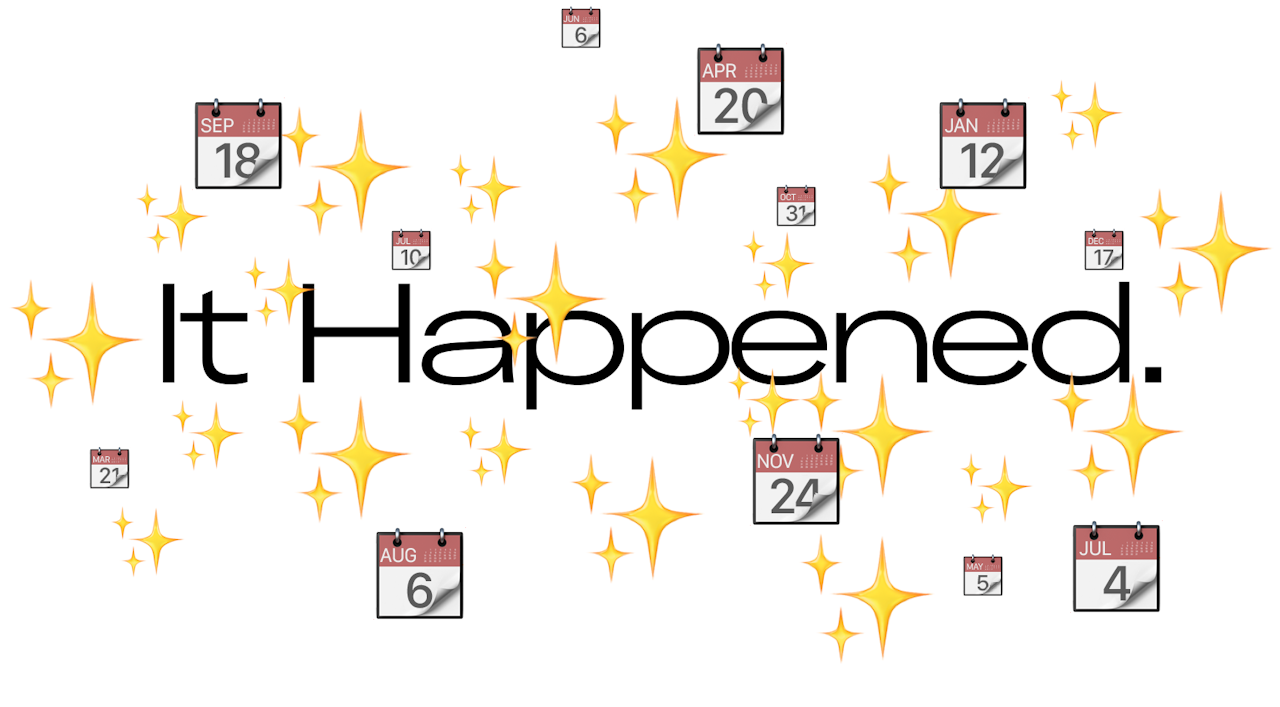“To this day I’m not sure how I created such chaos and wound up in that headspace,” Charlie Sheen said in an interview this past April, reflecting on his infamous 2011 meltdown. “It’s as though there were some alien or demonic possession going on,” he continued, evoking a kind of eldritch, body-invading nemesis in remembrance of his old months-long televised bender.
While surely figurative, Sheen’s contemporary rhetoric about his past is appropriate given the contrast of his recent form to that of eight years ago. Now he is so much more still and measured. He is not shaking, twitching, hyperbolizing, and arching his eyebrows disturbingly whenever he speaks. He is not, as he once was, proclaiming that he is “winning” while he clearly suffers.
He is calmer, now, because he is no longer on a ton of drugs and lying about it, and he is no longer the gleeful antihero in an absurd saga, about the lowering of standards for broadcasted human behavior. Sheen’s spectacular, protracted breakdown was similar to that of Howard Beale’s in Network, not in message (“I’m mad as hell, and I’m not going to take it anymore”) but in how thoroughly it exposed the lack of ethical foundation in media — how little of a push the industry needed to turn into an unfettered clown show, a carousel of unwell men being pushed into worse and worse shape so that the public would never look away.
Charlie Sheen doing some good old-fashioned drugs in order to revel in his most manic and egotistical self after his dismissal from Two and a Half Men was not, in either a traditional or a for-the-public-good sense, a newsworthy event. Celebrity implosions had been manically covered for years, but Sheen’s breakdown came at an inflection point for media, showing how Wow, This Guy Is Actually Nuts would become a defining narrative structure in the years ahead, and how a collapsing protagonist could actively shape the way they were covered. In a few scant years, the rules had changed entirely: Imagine if Britney Spears, who suffered through an indefinitely cruel newscycle following a public breakdown in 2007, had the same media ecosystem, and could have told her story more her own way.
His 2011 bluster has, ever since, been endemic to the platform, embedded in its personality.
Whether or not it was Sheen who was somewhat randomly chosen by the meeting of technology and time, though, someone would soon be the face of this shift. The internet’s promise of utopian sprawl was beginning to wear off, as it narrowed into a limited collection of hegemonic data networks masked as community spaces. Much of the omni-directional energy that people brought online was being consolidated into the arenas of just a handful of tech giants, suddenly working on a scale large enough to disrupt traditional media and drastically change the way journalism works.
Sheen, too obviously fucked up to wittingly do much of anything, stepped into the eye of this hurricane, caused by the rising friction between a growing internet and old-school media institutions. This is when he — again, not intentionally, because he was entirely too drunk and coked out to be calculating in this way — began writing the blueprint for a new kind of fame, a pioneering form of burning out that has since taken regular boundless flight on Twitter. His 2011 bluster has, ever since, been endemic to the platform, embedded in its personality.
In 2011, social media was firmly on its path to cultural dominance but its presence was also still just a fraction of what it is today — Twitter’s total userbase was less than a fifth of its current figure. The larger internet’s impact on what kind of stories would be reported was already real, however, and very presently becoming much realer. After he insulted showrunner Chuck Lorre in multiple interviews, in March CBS fired Sheen, then their highest-paid sitcom star at nearly $2 million per episode. They would quickly learn that they couldn’t just make him go away. Sheen started a Twitter account during his breakdown, literally setting records for follower growth when he did, before even publishing a single tweet. Rivals NBC and ABC would soon air unhinged interview segments with Sheen, but only after demand for wacky-ass Sheen antics — not just his posts, but his actual behavior — was further created when he first broke his silence by talking to one of the very worst men to ever find success on the internet: Alex Jones.
On Jones’ InfoWars, an internet-first radio show centered around an angry and conspiratorial worldview that was gaining in FM syndication, Sheen talked of “liv[ing] inside of a moment between a moment… You either love, or you hate, and you must do so violently,” he said. “You have to hate everybody that’s not in your family, because they’re there to destroy your family, and they will come at you in all forms and shapes. And therefore there’s nothing in the middle. I don’t live in the middle anymore, because that’s where you get slaughtered, that’s where you get embarrassed in front of the prom queen, and that’s just not an option.”
It’s hard not to quote the entirety of the interview, a frankly beautiful burst of hubristic gibberish, a remarkable outpouring of the id of a famous person operating outside of their usually tightly controlled context. “‘You’ve got to work through your resentments,’” he said in an intentionally stupid voice, mocking the possibility of going to therapy. “Yeah, no,” he responded rudely to his own impression. “I’m going to hang onto them, and they’re going to fuel my attack. They’re going to fuel the battle cry of my deadly and dangerous, secret and silent soldiers… You thought you were just messing with one dude — sorry: Winning,” he exclaimed, birthing a catchphrase.
With Jones’ encouragement, Sheen went on to claim that Alcoholics Anonymous was a “bootleg cult” and that he quickly cured his alcohol and drug addiction “with my brain.” Then he called Thomas Jefferson a pussy. Next was TMZ, who sent a large man wearing a track jacket and a lot of hair gel to Sheen’s house for a 42-minute video interview in lawn chairs. During the interview, Sheen claimed he was “100 percent” sober, but also took a whiff from a cup he was drinking out of and said “you can smell the vodka.”
It is, again, difficult not to share every word Sheen says through all of this, because every phrase from his mouth is a unique car crash of demented dude mantra; he was a warlock with tiger blood, he was a rock star from Mars, he was surrounded by goddesses (porn stars who lived with him, and who he suggests he paid to live with him), he was post-death, he had a different head and a different heart than anyone else, capable of enduring monstrous volumes of narcotics; he was a Vatican assassin; he was, himself, a drug that, if ingested, would cause children to weep over your corpse. He frantically leaned to and fro as he said these things about himself, twirling his fingers nervously, repeatedly leaving conversations with journalists to perform entire dialogues all by himself.
In the years that have followed, the Sheen-made tragicomedy has been streamlined, if not perfected. Twitter, in particular, has evolved into the quintessential podium on which to shuck all embarrassment and shame to say shiningly stupid things, to fast-growing audiences. It is the number one place where, if you happen to strike all the right chords of cognitive and cultural dissonance, you can make yourself into a soaring, eye-catching comet of bullshit.
Sometimes this tradition is intentional, knowing, ironic: dril, arguably the poet laureate of the medium, curates a feed that can often be described as a series of satirically cocksure micro-poems, delivered in the voice of a man who is falling but insists that he’s rising. Other times, and more importantly, the sensation is actual, and can touch every end of the class spectrum. In recent times, we’ve seen an angry Long Island loser living in his van become a summer celebrity on Twitter, after going on a powerfully misogynistic rant in a bagel store, and NFL star Antonio Brown captivate the platform with some performative, empty chest-puffing against his team, all of which ultimately looked like a distraction from his soon-to-be-discovered abuse of women (something Sheen and Brown have in common). And of course, in the post-Sheen years, we have seen Donald Trump use the platform to rant Sheen-like as he grew a gnarly, racist political power on the platform that helped him become the president. The list gets longer: Kanye West, Roseane Barr, Azealia Banks, Jose Canseco, Heidi Montag, Ted Nugent, Alec Baldwin, Courtney Love, and many, many more have all used the platform to express an anger and lack of mental wellness that’s reshaped our understanding of Celebrity.
A few of them, like Roseanne, actually experienced material professional consequences for publicly exploring the range of their inner noise. But mostly not: Like Sheen, these people were rewarded for their terrible, graceless behavior with a larger following. For the most part, famous people going off like this has increased attention for them in a way that can be monetized. The past decade of social media has made a weighty truth more true with each moment: no press is bad press. The fences between audiences and public figures (whether they already are a public figure, or about to become one with the right amount of online ballast) have collapsed mightily.
This, of course, is not precisely a bad thing — the positive community gains of the internet, and the potential for more, are unspeakably large and worth plenty of optimism. But increased connective capacity has no intrinsic moral charge, in any direction, and requires cooperative, systemic stewardship. Without better institutional standards for passable online behavior, we will keep seeing wind advance the sails of bad people.
Alex Jones, a highly watchable person, kinetic and passionate and always unfathomable in his loud delusions, is an online character thoroughly in the vein of Sheen, expanding his internet presence immensely by losing his mind in an entertaining way. He also spreads lies to a hateful, radicalized audience, posing real public danger. His 2018 dismissal from all the major social media platforms gives us an example of how the web’s overlords might deal differently with his form of internet-climbing — a more advanced, pernicious form of the Sheen strain, to be sure — over the course of the coming decade.
And we could probably all, as individuals, do less to enable Sheens upon Sheens, collectively leaning in to watch proudly performed pathologies, creating a culture that asks for more and more of them. Charlie Sheen was the seminal carrier of a cultural infection that has clearly spread, and a healthier future for the internet — increasingly a synonym for the world — depends in part on if we ever properly contain it.


